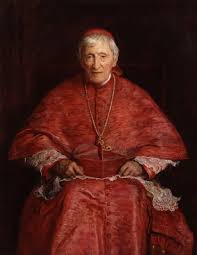The character of evil, in imitation of its greatest champion, is such that it is ever on the prowl looking to devour the freedom of each man. One of the means by which such freedom is protected is liberty of conscience. This natural right of conscience protects each man from having to act in such a way that he is forced to participate in something that he knows to be evil. As the prevailing culture moves further and further from its Christian roots, the protection by law of the rights of conscience becomes increasingly important. Therefore, it is worth examining more thoroughly in order bring into relief why it is so vital.
The Character of Conscience
First, we must clear up some of the popular misconceptions about conscience. It is not a thing like the proverbial angel on the shoulder, but a mode of judgement. More specifically it is a judgment of practical reason that is linked to the power of man to do what is right and shun what is evil within the concrete circumstances of human life. Since it is a power of practical reason, it depends upon a knowledge of the principles that lead to genuine human thriving even if it is only concerned with applying those principles. It is then the power of man to link truth with goodness.
Conscience, even if it issues commands to the will, is not an act of the will. Therefore, we must always keep conscience from becoming synonymous with self-will. Most people treat conscience as if it were freedom to do whatever they want rather than being beholden to the truth. It carries about with it a certain obstinacy of “sticking to your guns” no matter what. Therefore, authority is quick to use its power to command actions in conformity with cultural norms. This is nothing more than Power attempting to replace conscience.

Conscience protection is the Catholic’s last line of defense against the growing power of the State. The next step is to cross over into the field of martyrdom. So we must fight vehemently to keep it in place. The necessary principles for this defense were laid out quite articulately over a century ago by St. John Henry Newman. In a letter to the Duke of Norfolk, the saint gives us a defense of the Supremacy of Conscience that fits with a true and Catholic understanding of conscience and its inviolability.
Conscience and Character
Newman notes that all men are by nature bound to observe the natural law. Our apprehension of this Divine Law occurs within the realm of conscience. Even “though it may suffer refraction in passing into the intellectual medium of each, it is not therefore so affected as to lose its character of being the Divine Law, but still has, as such, the prerogative of commanding obedience.” Steeped within Catholic tradition, Newman views conscience as the voice of God and not merely the creation of man. It may be more or less heard correctly by each man, but it still remains what he calls the “aboriginal Vicar of Christ.”
Based upon the fact that conscience is properly viewed as the voice of God, the Fourth Lateran Council said: “He who acts against his conscience loses his soul.” To act against conscience is to act against God. Despite the fact that God has implanted this voice of conscience commanding us to do good and avoid evil, the ear of the intellect needs to be trained and given its “due formation.” This formation must come through reason enlightened by Divine Faith because the latter was given to purify the former. To fail to form the conscience properly constitutes a great evil, perhaps one of the greatest because it chooses to deny conscience its rightful dignity.
A man has a right to something because he has a corresponding duty. The right of conscience flows from his obligation to obey it. But this obligation does not flow from a need to be true to oneself, but to obey God. As Newman puts it, if conscience is the voice of the Moral Governor then the rights of conscience are really the rights of the Creator and the duties toward Him. “Conscience,” Newman says, “has rights because it has duties”. This ultimately is what makes freedom of conscience so important and why we must protect it at all costs. St. Thomas More is the model in this regard. He was a martyr because he obeyed the dictates of God mediated through His conscience.
As religious liberty goes into decline, conscience protection becomes more and more important. Pope Leo XIII called it true liberty, the liberty of the sons of God that shows that “the dignity of man and is stronger than all violence or wrong.” (Libertas, 30). When all the power of the State bears down upon a single man and he still refuses to join in evil, it shows that man is bigger than the State and shows that he is made for God. Leo XIII calls it “the kind of liberty the Apostles claimed for themselves with intrepid constancy, which the apologists of Christianity confirmed by their writings, and which the martyrs in vast numbers consecrated by their blood. And deservedly so; for this Christian liberty bears witness to the absolute and most just dominion of God over man, and to the chief and supreme duty of man toward God” (Libertas, 30).
